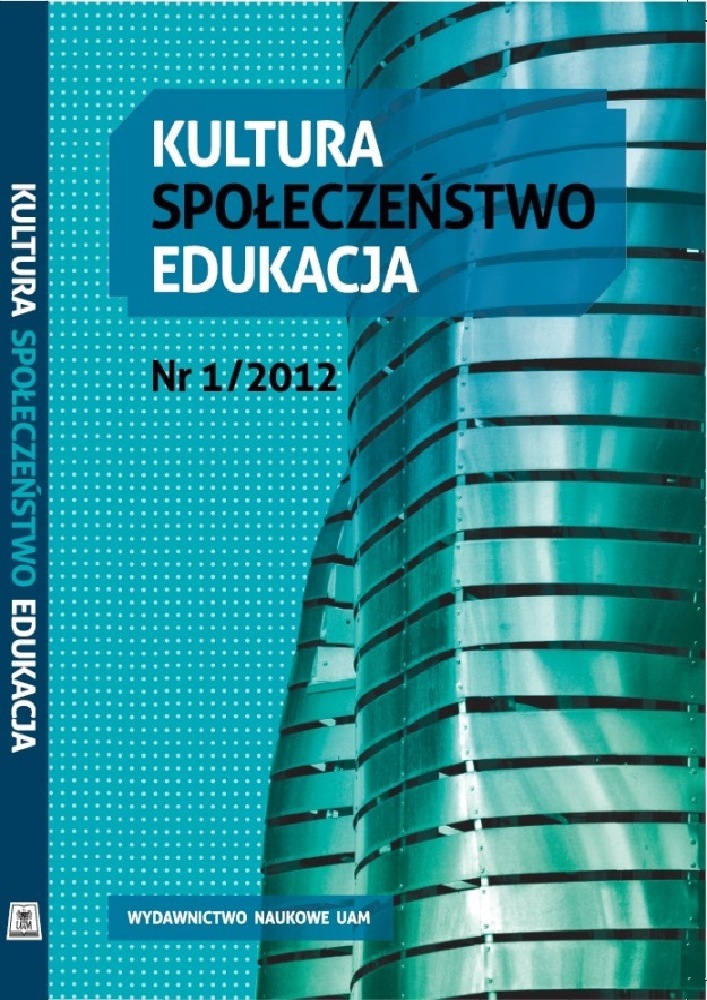Abstrakt
The educational reality is nowadays increasingly associated with the philosophy of postmodernity. The new orientation leads researchers to explore new paths – one of them may be the inclusion of popular culture with all its potential, not excluding popular arts, to the educational canon. This text is an attempt to approximate the popular arts as having significant educational potential in reference to the critical pedagogy. I will try to prove that even purely entertaining aspects of culture may have educational content. First of all, I would like to describe a critical orientation in pedagogy; I will present its practical side in relation to the deconstruction of cultural meanings and nally, I will show some consequent implications for relations between culture and education. The next part of my considerations will concern the popular culture as an educational area, with particular emphasis on a game as the source of culture and as an inherent element of popular arts. I will present in detail associations between popular arts and education based on Polish cabaret which I acknowledged as a place, where basic tasks and functions of critical pedagogy can be seen and realized. Finally, I will present some parts of interviews which had been conducted as my researches – these are the respondents’ opinions about cabaret and its interpretation. This part seems to be showing cabaret as a place of discourse, where a critical dialogue between the sender, the content and the recipient of cabaret transmission takes place.Bibliografia
Kluszczyński R.W. 2010. Sztuka interaktywna. Od dzieła – instrumentu do interaktywnego spektaklu. Warszawa.
Kron F.W., A. Sofos. 2008. Dydaktyka mediów. Gdańsk.
Kwieciński Z. 2000. Tropy – ślady – próby. Studia i szkice z pedagogiki pogranicza. Poznań - Olsztyn
Lemish D. 2008. Dzieci i telewizja. Perspektywa globalna. Kraków.
Lister M., J. Dover, S. Giddings, I. Grant, K. Kelly. Nowe media. Wprowadzenie, tłum. M. Lorek, A. Sadza, K. Sawicka. 2009. Kraków.
Pedagogia. Pedagogika wobec edukacji, polityki oświatowej i badań naukowych. T. 2. 2006. Red. B. Śliwerski. Gdańsk.
Urry J. 2007. Spojrzenie turysty. Warszawa.
Licencja
Prawa autorskie (c) 2017 Kamila Osip

Utwór dostępny jest na licencji Creative Commons Uznanie autorstwa – Bez utworów zależnych 4.0 Międzynarodowe.
